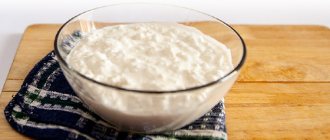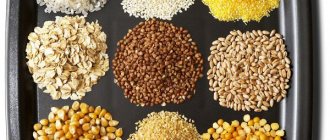People around the world are reconsidering their approaches to creating a plant-based diet. The reasons are different for everyone: some fight for animal rights, some try to protect the environment in this way, and some simply don’t like animal food. In this regard, more and more plant-based products are appearing in stores: plant-based milk, plant-based butter alternatives, plant-based cheese and cream. Doctors and environmentalists support this dietary pattern, but not everyone knows why. Today, Heroine, armed with authoritative research, understands what plant foods actually do for our body.
Benefit not only for humans, but for humanity
The large-scale international research project Eat Lancet, which brought together scientists from 16 countries, simulated the situation that would develop on the planet if people filled 80% of their plates with plant foods. The results obtained by doctors, ecologists and economists showed that by 2050, mortality will decrease by 19-24% due to a decrease in the incidence of cancer, heart disease and diabetes. Why? The calorie content of the diet will decrease, while the consumption of plant products, and therefore nutrients, will increase.
Here's what Harvard School of Public Health professor Walter Willett says about this:
A diet rich in plant-based foods and low in animal-based foods promotes health and is environmentally sustainable.
Plant-based dairy alternatives fit perfectly into this concept. Today they can be found in almost any store: plant-based milk, spreads made from vegetable oils, nut-based yoghurts, cheeses made from legumes. Foreign supermarkets even have specially designated retail spaces where plant-based, dairy-free, and vegan lines are sold.
Vegetables
Vegetables are products of plant origin that can almost completely replace animal and poultry meat. How? Very simple. Some of their representatives contain the optimal amount of protein. In terms of volume and quality, it can compete with the protein found in meat. All vegetables can be divided into the following groups:
- Juicy: cucumbers, tomatoes, peppers, eggplants, pumpkin, etc.
- Leafy: cabbage, lettuce, spinach, etc.
- Seeds: beans, beans, peas, lentils.
- Petiole: celery, fennel.
- Floral: cauliflower, artichoke.
- Tuberous: carrots, onions, radishes, potatoes, etc.
Interestingly, the above-ground part of the plant is much more useful than the part that is in the ground. Let's take beets, for example. Its tops will be much more useful than the rhizomes. Vegetables should be present in any person's diet in large quantities, as they contain large amounts of carbohydrates, vitamins and protein.
The composition of plant milk analogues differs from products based on animal milk
The “power” of plants lies in the content of beneficial plant components: fiber, phytonutrients, antioxidants, and most importantly, healthy and light vegetable fats. For comparison: the beneficial components in animal milk are protein and vitamins, but doctors consider the fat in it to be harmful, since it has a bad effect on the cardiovascular system. As a result, abuse of high-fat milk can lead to coronary heart disease, cerebrovascular disease, peripheral artery disease, rheumatic carditis, deep vein thrombosis, pulmonary embolism, heart attacks, strokes and other health problems.
What are the benefits of vegetable protein?
- strengthens the immune system,
- prevention of colds,
- cancer prevention,
- saturates the body with fiber,
- restores natural microflora,
- does not contain cholesterol,
- easily and quickly absorbed,
- improves metabolism,
- normalizes digestion,
- relieves constipation,
- improve the functioning of the cardiovascular system,
- prevention of atherosclerosis,
- normalizes the process of hematopoiesis,
- diabetes prevention,
- stimulates the reproductive system,
- protects against obesity,
- energizes,
- gives strength,
- improves the condition of skin, hair and nails.
Harm from animal proteins
Consumption of animal proteins, especially in excessive quantities, leads to metabolic disorders, weakening of the human immune system and heart. In addition, excessive consumption of red meat provokes the development of cancer - red meat increases the risk of developing colon cancer.
If animal protein is so beneficial, then why do doctors themselves always advise giving it up during treatment for diseases of the cardiovascular and digestive system?











